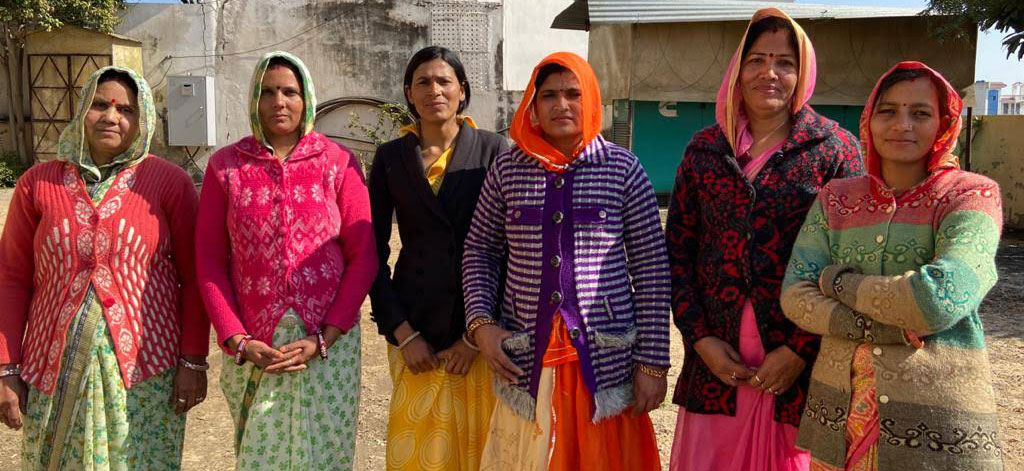The Development division primarily focuses on gender sensitization and improving women’s capacities and agency, and aims to intersperse these agendas with topical global challenges. In 2012, CSR initiated implementation and advocacy work with Panchayati Raj Institution members, specifically Elected Women Representatives, to enhance understanding of water conservation and climate change in water-scarce parts of Jaipur and Abu Road in Rajasthan.
We employ a dynamic mix of social research methods such as focus groups, in-depth interviews surveys and policy reviews with wide-ranging stakeholders including key beneficiaries, i.e Elected Women Representatives, local NGOs and civil societies and government stakeholders. Our programmatic approach is fused with empirical research, advocacy and training development, and we have also conducted basic and technical-level trainings for these women to increase their knowledge about best practices of water management, and how to implement them. Our training models are based on participatory learning methods which are also effective in facilitation of training-of-trainers and subsequent hand-holdings. From the program period of 2012-2018, CSR has administered 35 trainings, and directly impacted more than 50 EWRs who are now leading the climate change adaptation journey in their respective constituencies.
Following from our success in Rajasthan, CSR’s development division has also actively worked on trans-boundary issues of rural women in Nepal and Bihar due to the Kosi river basin. For this particular undertaking, CSR initially conducted a needs-based assessment forming the basis of research, and later developed training programmes for Elected Women Representatives in Bihar and active women leaders in Nepal to increase their responsiveness to natural disasters. This grassroots cadre of women in both countries is effectively trained on disaster risk mitigation, and even has a sustainable flood management committee for speedy rehabilitation, recovery and reconstruction. CSR’s development wing is experienced in influencing policy and liaises with government authorities on a regular basis.
The underlying driver of our programmatic interventions centred on natural resource management is the fact that women can act as natural leaders during climate change action, and there is a need to denunciate their positioning as passive victims. We aim to maximize their leadership and capacities so that it can be further operationalized to advance bottom-up development.
Further, the water conservation and climate change programs of CSR are aligned with and supportive of UN Sustainable Development Goal 5, 6 and 13, which supports women’s equality and empowerment and targets increasing, women’s participation in decision-making at all levels of governance. Along with their participation in making efforts to make portable drinking water safe and available in their villages by conserving and protecting the existing water sources in this way they are partnering in planning to reduce the effects of climate change.

